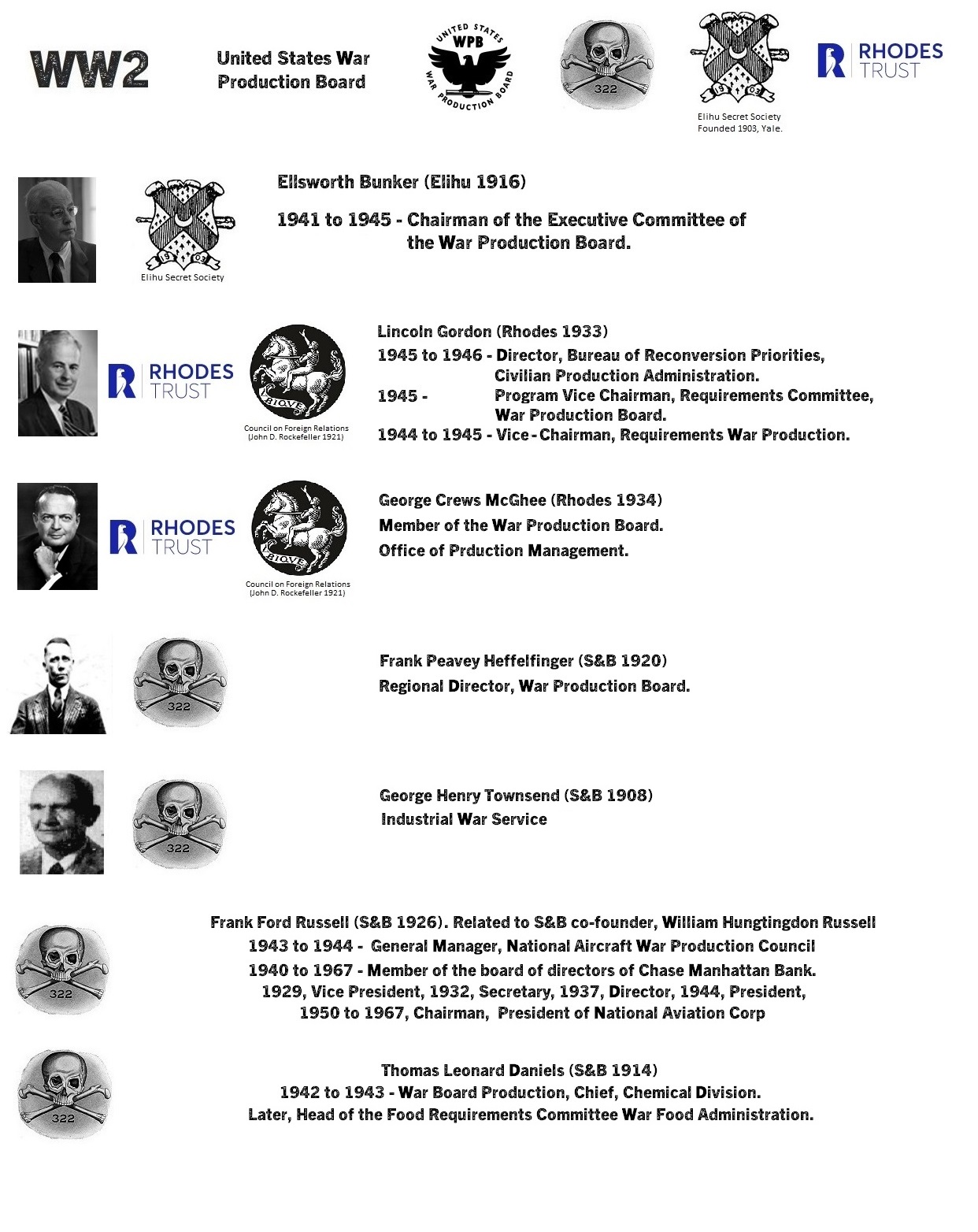
WW2 - United States War Production Board
No disrespect to honourable servicemen and women is intended.
1943, Observations of William Allen White, an honest editor if ever there was one, who made one of the best literary critiques on this financial establishment in the context of World War II; this, it should be noted, was after ten years of FDR and at the peak of Roosevelt’s political power:[3,p27]
One cannot move about Washington without bumping into the fact that we are running two wars - a foreign war and a domestic one.
The domestic war is in the various war boards. Every great commodity industry in this country is organised nationally and many of them, perhaps most of them are parts of great national organizations, cartels, agreements, which function on both sides of the battle front.
Here in Washington every industry is interested in saving its own self. It wants to come out of the war with a whole hide and with its organization unimpaired, legally or illegally.
One is surprised to find men representing great commodity trusts or agreements or syndicates planted in the various war boards. Its is silly to say New Dealers run this show. It’s run largely by absentee owners of amalgamated industrial wealth, men who either directly or through their employers control small minority blocks, closely organized, the manipulate the physical plants of these trusts.
For the most part these managerial magnates are decent, patriotic Americans. They have great talents. If you touch them in nine relations of life out of ten they are kindly, courteous, Christian gentlemen.
But in the tenth relation, where it touches their own organization, they are stark mad, ruthless, unchecked by God or man, paramoics, in fact, as evil in their design as Hitler.
They are determined to come out of this war victorious for their own stockholders - which is not surprising. It is understandable also for Hitler to desire to come out of this war at any cost victorious for the German people.
But this attitude of the men who control the great commodity industries, and who propose to run them according to their own judgement and their own morals, do not make a pretty picture for the welfare of the common man.
These international combinations of industrial capital are fierce troglodyte animals with tremendous power and no social brains. They hover like an old silurian reptile about our decent more or less Christian civilization - like great dragons in this modern day when dragons are supposed to be dead.
Skull and Bones / Others / Related - to be completed
William Yandell Elliott (Rhodes 1919) - Vice President of the War Production Board in Charge of Civilian requirements.
Lincoln Gordon (Rhodes 1933)
1945 to 1946 - Director, Bureau of Reconversion Priorities, Civilian Production Administration.
1945 - Program Vice Chairman, Requirements Committee, War Production Board.
1944 to 1945 - Vice-Chairman, Requirements War Production.
Damon deBlois Wack (S&B 1929) - Chairman St. Louis committee of War Production Fund to conserve manpower. War Production Board Industry Advisory Committee. Engineers Club of San Francisco.
1942 to 1944 - Executive Vice-President National Bearing Metals Corporation. (founded in 1917)
Frank Ford Russell (S&B 1926) - General Manager, National Aircraft War Production Council.
Frank Peavey Heffelfinger (S&B 1920) - Regional Director, War Production Board.
Thomas Leonard. Daniels (S&B 1914) - Chief in the Chemical Division and later Head of the Food Requirements Committee War Food Administration.
George Henry Townsend (S&B 1908) - Industrial War Service.
Charles Edward Adams (S&B 1904) - Chief Iron and Steel Div, War Production Board. Council of National Defense on materials. National Defense Mediation Board.
George Crews McGhee (Rhodes 1934)
WW2 - Staff member in the Office of Production Management and on the War Production Board.



Comments